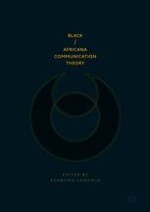2018 | OriginalPaper | Chapter
13. New Frames: A Pastiche of Theoretical Approaches to Examine African American and Diasporic Communication
Author : Gracie Lawson-Borders
Published in: Black/Africana Communication Theory
Publisher: Springer International Publishing
Activate our intelligent search to find suitable subject content or patents.
Select sections of text to find matching patents with Artificial Intelligence. powered by
Select sections of text to find additional relevant content using AI-assisted search. powered by
